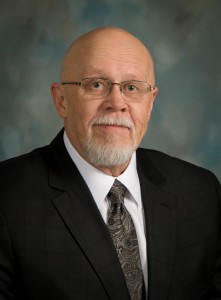Readers have no doubt heard all of the factoids put forth by self-appointed boomer experts and national aging organizations over the past couple of decades:
- Boomers will be teenagers forever—age 60 is the new 30.
- Boomers will be a drain on the economy and overwhelm the healthcare systems.
- Boomers will reinvent retirement.
- Boomers will not tolerate stereotypes.
These statements are simply factoids that have become accepted factual. (A factoid refers to unverified or inaccurate information presented in the press as factual, often as part of a publicity effort, then accepted as true because of frequent repetition.) These factoids are a diversion created by those struggling to hang on to models that served them with yesterday’s youth markets, rather than an insightful analysis of the changing marketplace realities.
Baby Boomers will be teenagers forever—age 60 is the new 30. Myopic, overly simplistic and wrong, this factoid ignores developmental psychology research and condemns 78 million adults to terminal narcissism. It is at worst ageist, and at best replaces one stereotype with another. Today’s older adults increasingly look forward to an active later life.
Baby Boomers will be a drain on the economy and overwhelm the healthcare systems. This is one of the most common and negative factoids touted by politicians looking to stroke a growing special interest group of seniors or, more appropriately, the publicly funded organizations serving them. Yes, this scenario could happen. But this  perspective looks at tomorrow through yesterday’s lens, forgetting that everything has changed. Boomers exercise more, eat better and smoke less than their predecessors, indicating that they will likely continue the renaissance. With the growing emphasis on health and well-being, complemented by increasingly sophisticated healthcare services, telemedicine and health promotion, we could see an outcome just the opposite of this factoid.
perspective looks at tomorrow through yesterday’s lens, forgetting that everything has changed. Boomers exercise more, eat better and smoke less than their predecessors, indicating that they will likely continue the renaissance. With the growing emphasis on health and well-being, complemented by increasingly sophisticated healthcare services, telemedicine and health promotion, we could see an outcome just the opposite of this factoid.
Baby Boomers will reinvent retirement. This statement gives too much credit to Boomers for a revolution that has been growing for two decades. Leading-edge Baby Boomers were just starting to turn 60 when this factoid was introduced. In reality, the very concept of retirement has become outdated.
Baby Boomers will not tolerate aging stereotypes. If this factoid were true, misguided media stories and advertisements targeting Boomers would not exist. In fact, a majority of these efforts are either created or approved by Boomers, who are both victims and perpetuators of aging stereotypes. Further, if this statement were true, the White House Conference on Aging would have identified ageism and aging stereotypes as a major issue.
Researchers are just now documenting the problems caused by negative aging stereotypes. In the last 3 decades, we have replaced purpose with pills; productive lives with retirement packages; personal significance with shallow volunteer opportunities; and meaningful community involvement with mindless activities.
While senior/Boomer typologies have made research companies and ad agencies a lot of money, they exacerbate our misunderstanding of a values-centered age cohort of older adults, rather than improving the effectiveness of business communications. The tools needed to grind a new lens for future success are readily available to those with the vision to use them.
 Richard Ambrosius, MA, is the president of Positive Aging LLC, a marketing consulting, motivational speaking and training firm. For 35 years, Ambrosius has been educating companies, nonprofit organizations and public agencies on how better to communicate with and serve middle-aged and older adults. Moreover, he was among the first in the United States to realize the potential of the New Consumer Majority and specialize in older markets. Ambrosius has delivered keynote addresses and motivational workshops in 49 states.
Richard Ambrosius, MA, is the president of Positive Aging LLC, a marketing consulting, motivational speaking and training firm. For 35 years, Ambrosius has been educating companies, nonprofit organizations and public agencies on how better to communicate with and serve middle-aged and older adults. Moreover, he was among the first in the United States to realize the potential of the New Consumer Majority and specialize in older markets. Ambrosius has delivered keynote addresses and motivational workshops in 49 states.
